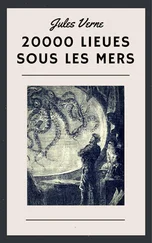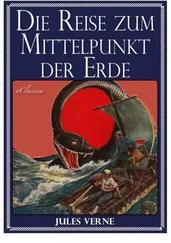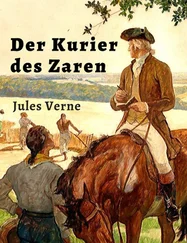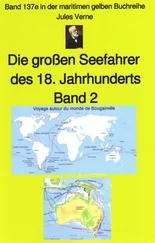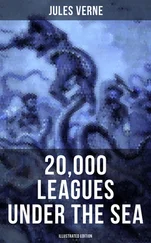The question of knowing how, in their condition, they were to act against the pirates, was thoroughly discussed on the 29th of November by Cyrus Harding, Gideon Spilett, and Pencroft, at a moment when Herbert was asleep and could not hear them.
“My friends,” said the reporter, after they had talked of Neb and of the impossibility of communicating with him, “I think, like you, that to venture on the road to the corral would be to risk receiving a gun-shot without being able to return it. But do you not think that the best thing to be done now is to openly give chase to these wretches?”
“That is just what I was thinking,” answered Pencroft. “I believe we’re not fellows to be afraid of a bullet, and as for me, if Captain Harding approves, I’m ready to dash into the forest! Why, hang it, one man is equal to another!”
“But is he equal to five?” asked the engineer.
“I will join Pencroft,” said the reporter, “and both of us, well-armed and accompanied by Top—”
“My dear Spilett, and you, Pencroft,” answered Harding, “let us reason coolly. If the convicts were hid in one spot of the island, if we knew that spot, and had only to dislodge them, I would undertake a direct attack; but is there not occasion to fear, on the contrary, that they are sure to fire the first shot.”
“Well, captain,” cried Pencroft, “a bullet does not always reach its mark.”
“That which struck Herbert did not miss, Pencroft,” replied the engineer. “Besides, observe that if both of you left the corral I should remain here alone to defend it. Do you imagine that the convicts will not see you leave it, that they will not allow you to enter the forest, and that they will not attack it during your absence, knowing that there is no one here but a wounded boy and a man?”
“You are right, captain,” replied Pencroft, his chest swelling with sullen anger. “You are right; they will do all they can to retake the corral, which they know to be well stored; and alone you could not hold it against them.”
“Oh, if we were only at Granite House!”
“If we were at Granite House,” answered the engineer, “the case would be very different. There I should not be afraid to leave Herbert with one, whilst the other three went to search the forests of the island. But we are at the corral, and it is best to stay here until we can leave it together.”
Cyrus Harding’s reasoning was unanswerable, and his companions understood it well.
“If only Ayrton was still one of us!” said Gideon Spilett. “Poor fellow! his return to social life will have been but of short duration.”
“If he is dead,” added Pencroft, in a peculiar tone.
“Do you hope, then, Pencroft, that the villains have spared him?” asked Gideon Spilett.
“Yes, if they had any interest in doing so.”
“What! you suppose that Ayrton, finding his old companions, forgetting all that he owes us—”
“Who knows?” answered the sailor, who did not hazard this shameful supposition without hesitating.
“Pencroft,” said Harding, taking the sailor’s arm, “that is a wicked idea of yours, and you will distress me much if you persist in speaking thus. I will answer for Ayrton’s fidelity.”
“And I also,” added the reporter quickly.
“Yes, yes, captain, I was wrong,” replied Pencroft; “it was a wicked idea indeed that I had, and nothing justifies it. But what can I do? I’m not in my senses. This imprisonment in the corral wearies me horribly, and I have never felt so excited as I do now.”
“Be patient, Pencroft,” replied the engineer. “How long will it be, my dear Spilett, before you think Herbert may be carried to Granite House?”
“That is difficult to say, Cyrus,” answered the reporter, “for any imprudence might involve terrible consequences. But his convalescence is progressing, and if he continues to gain strength, in eight days from now—well, we shall see.”
Eight days! That would put off the return to Granite House until the first days of December. At this time two months of spring had already passed. The weather was fine, and the heat began to be great. The forests of the island were in full leaf, and the time was approaching when the usual crops ought to be gathered. The return to the plateau of Prospect Heights would, therefore, be followed by extensive agricultural labours, interrupted only by the projected expedition through the island.
It can, therefore, be well understood how injurious this seclusion in the corral must be to the colonists.
But if they were compelled to bow before necessity, they did not do so without impatience.
Once or twice the reporter ventured out into the road and made the tour of the palisade. Top accompanied him, and Gideon Spilett, his gun cocked, was ready for any emergency.
He met with no misadventure and found no suspicious traces. His dog would have warned him of any danger, and, as Top did not bark, it might be concluded that there was nothing to fear at that moment at least, and that the convicts were occupied in another part of the island.
However, on his second sortie, on the 27th of November, Gideon Spilett, who had ventured a quarter of a mile into the wood, towards the south of the mountains, remarked that Top scented something. The dog had no longer his unconcerned manner; he went backwards and forwards, ferreting amongst the grass and bushes as if his smell had revealed some suspicious object to him.
Gideon Spilett followed Top, encouraged him, excited him by his voice, whilst keeping a sharp look-out, his gun ready to fire, and sheltering himself behind the trees. It was not probable that Top scented the presence of man, for in that case, he would have announced it by half-uttered, sullen, angry barks. Now, as he did not growl, it was because danger was neither near nor approaching.
Nearly five minutes passed thus, Top rummaging, the reporter following him prudently, when, all at once, the dog rushed towards a thick bush, and drew out a rag.
It was a piece of cloth, stained and torn, which Spilett immediately brought back to the corral. There it was examined by the colonists, who found that it was a fragment of Ayrton’s waistcoat, a piece of that felt, manufactured solely by the Granite House factory.
“You see, Pencroft,” observed Harding, “there has been resistance on the part of the unfortunate Ayrton. The convicts have dragged him away in spite of himself! Do you still doubt his honesty?”
“No, captain,” answered the sailor, “and I repented of my suspicion a long time ago! But it seems to me that something may be learned from the incident.”
“What is that?” asked the reporter.
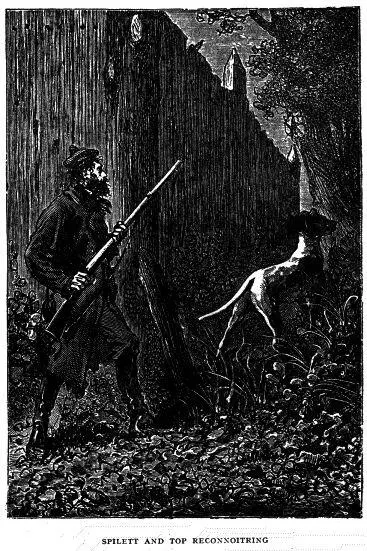
“It is that Ayrton was not killed at the corral! That they dragged him away living, since he has resisted. Therefore, perhaps, he is still living!”
“Perhaps, indeed,” replied the engineer, who remained thoughtful.
This was a hope, to which Ayrton’s companions could still hold. Indeed, they had before believed that, surprised in the corral, Ayrton had fallen by a bullet, as Herbert had fallen. But if the convicts had not killed him at first, if they had brought him living to another part of the island, might it not be admitted that he was still their prisoner? Perhaps, even, one of them had found in Ayrton his old Australian companion Ben Joyce, the chief of the escaped convicts. And who knows but that they had conceived the impossible hope of bringing back Ayrton to themselves? He would have been very useful to them, if they had been able to make him turn traitor!
This incident was, therefore, favourably interpreted at the corral, and it no longer appeared impossible that they should find Ayrton again. On his side, if he was only a prisoner, Ayrton would no doubt do all he could to escape from the hands of the villains, and this would be a powerful aid to the settlers!
Читать дальше



